#mark bittman
Explore tagged Tumblr posts
Text
Mark Bittman – Hayvan, Sebze ve Abur Cubur (2025)
Mark Bittman bu kitabında, insanlığın gıda ile olan ilişkisinin evrimini, avcı-toplayıcı dönemden günümüzün endüstriyel tarımına kadar uzanan geniş bir zaman diliminde inceliyor. Bittman, ‘Hayvan, Sebze Abur Cubur: Sürdürülebilir Olandan Bizi İntihara Sürükleyene Uzanan Bir Gıda Tarihi’ (‘Animal, Vegetable, Junk: A History of Food, from Sustainable to Suicidal’) kitabında, gıdanın sadece beslenme…

View On WordPress
#2025#Beyaz Baykuş Yayınları#Cemal Can Tarımcıoğlu#Hayvan Sebze ve Abur Cubur#Mark Bittman#Sürdürülebilir Olandan Bizi İntihara Sürükleyene Uzanan Bir Gıda Tarihi
0 notes
Text
beans and greens my beloved
6 notes
·
View notes
Text
I don't want to clown on the original post because it seems like a lot of people agree with it but at the same time...

...this is like how Mark Bittman writes recipes lmao
6 notes
·
View notes
Text
guys okay i finally took the plunge and started using diamond crystal kosher salt and.......... im sorry to say but the hype is real. it’s soft and fluffy and the crystals are all the perfect size and it tastes genuinely so good: airy and more delicate and less intense than morton’s with none of that kind of harsh almost metallic aftertaste. texturally ive never felt a salt like it. cooking with it is insane. it melts right into food and bc of the texture it seasons everything so evenly. unfortunately all the salt snobs are right. i didnt want them to be but oh my god. if you’re on the fence about it. this is your sign.
#mark bittman im sorry for bullying you#thomas keller i now understand your pie crust.#like...... holy shit. i dont know why it's taken me so long#cooking
2 notes
·
View notes
Text
Mark Bittmans Apple UpsideDown Cake
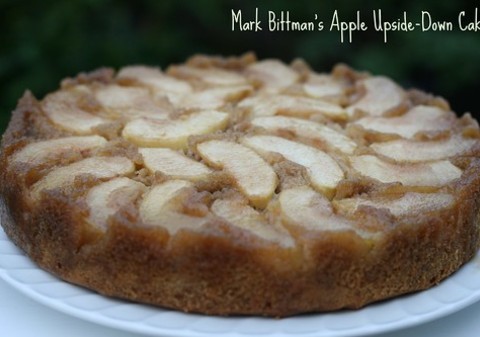
0 notes
Photo

Mark Bittman Dot ComFor Real
0 notes
Text

Baked Salmon with Lemon and Thyme
My favorite salmon dish baked in the oven. This salmon is so simple to bake that it will quickly become a mainstay on your weekday menu. But I want to provide one crucial piece of advice right away: Instead of cooking the salmon pieces in a baking dish, use a sheet pan. With the former, the fish will cook evenly and avoid having raw centers and dried-out tops since the oven's heat will be able to circulate throughout the fish.
“Food is art, and food is love. And we should show love and appreciation for those who cook it by eating it with relish.” — Mark Bittman
#food#seafood dishes#fish dishes#salmon recipe#baked fish#baked salmon#homemade#home cooking#home cooked meal#healthy cooking#healthy food#my photography#food photography#original photography#thelcsdaily
287 notes
·
View notes
Text
The “Green Revolution” is the name given to a wholescale transformation of global food production led primarily by the United States that began in the 1940s and accelerated from the ’60s through the ’80s. It used collaborative research, public subsidies, chemical fertilizers, and genetic modifications to increase global food production, but it also led to greater carbon emissions from agriculture, soil erosion, increased diffusion of toxic chemicals, and other environmental degradations. There were also profoundly negative social consequences, as large agricultural production was emphasized without any accompanying focus on inequalities in land distribution or gendered labor. Overall food instability as a result in fact increased in countries where the Green Revolution took place, even as it decreased globally. How did that happen? The food writer and historian Mark Bittman notes that the massive decrease in global hunger in these years happened almost exclusively in China, where there was no Green Revolution. Instead, Chinese leaders focused on state support for independent farmers, and the goal was to reduce poverty, not just increase crop yields. Having more crops available does not mean they will be properly distributed, after all. Much of the world’s explosion of new corn products during the Green Revolution in other countries, for example, went to ethanol and high-fructose corn syrup. China’s more direct if still imperfect approach achieved more of what the Green Revolution promised: “Production tripled post-Mao, but, more important, the world’s most dramatic decrease in poverty ever took place.” That didn’t happen because of technological change alone, but because of the combination of technology, investment in ordinary people, and economic regulation.
Avram Alpert, The Good-Enough Life
75 notes
·
View notes
Text
re: the top 5 books ask, here's what I didn't include but all of this could go on this list.
Math and Physics: Wonders of Numbers (Clifford Pickover)/Surely You're Joking, Mr. Feynman (Richard Feynman)/The Elegant Universe (Brian Greene) were all awards or graduation presents in middle and high school; one is a bunch of wild math puzzles, one is a (very funny) memoir of a legendary physicist; and one is an exploration of a then very hot theoretical physics theory, and it's interesting to consider how all of them shaped me.
why I as a math/physics person am also an avid meta writer:Hyperspace (Michio Kaku) and How To Write Science Fiction and Fantasy (Orson Scott Card) - Kaku is a physicist as well but writes for the layman, and Hyperspace is about extradimensional physics but also provides a huge list of fictional explorations, which is why I'm pairing it with How to Write Science Fiction and Fantasy. Look I cannot vouch for Card as a person given the Mormon Homophobia but this book was absolutely formative, I read it very young (not long after Ender's Game, actually), and I do recommend pirating it because I inherited a great deal of my understanding of narratology and good writing from it, and it introduced me to some of my favorite less problematic writers. These books also serve as "introduction to a billion fucked up sf short stories I read in high school"; just copy down every fictional work they mention and read as many as you can.
Medicine, healthcare, neuroscience, and the human element: The works of Oliver Sacks/The Spirit Catches You and You Fall Down (Anne Fadiman)/The Checklist Manifesto (Atul Gawande) - I think I would not have been as happy as a physician, but I also think had a few things gone slightly differently in my life (notably, having a high school bio teacher who was competent and whom I did not detest) I might have been pushed in that direction, and as I'm in other more peripheral spaces in healthcare, these are still very important books in terms of how I think.
Cookbooks: How to Cook Everything Vegetarian (Mark Bittman) and Salt Fat Acid Heat (Samin Nosrat) - I'm a pretty good cook and Bittman's is the first cookbook I owned as an adult (I am not vegetarian but I was in my first ever apartment, as I keep kosher and therefore having two sets of dishes and buying kosher meat was prohibitively expensive as a grad student, at least if I also wanted to like, go out for drinks or pizza on occasion). Salt Fat Acid Heat is much more recent but I think that's what really freed me from needing cookbooks and instead thinking about cooking more by experience.
Childhood formative books, especially in fantasy: A Barrel of Laughs, A Vale of Tears (Jules Pfeiffer)/The Phantom Tollbooth (Norton Juster)/the general works of Diana Wynne Jones, Ellen Raskin, and Elizabeth Enright. A taste for the weird/mythical/fractured fairy tales.
Teen/Adult formative books in sf: Jonathan Strange and Mr Norrell (Susana Clarke)/The Belgariad (David Eddings)/Wild Seed (Octavia Butler)/Old Kingdom series (Garth Nix)/I, Robot (Isaac Aasimov)/The City and the City (China Mieville) - teens and adulthood formative books in sf and fantasy. The lessons learned here, in order, respectively: find the intersection of mythology and academia and if you're doing pastiche do it impeccably; if you're not original, be funny and kind to your characters (still throw rocks at them but treat them as people); with that said be original and as weird as you fucking want; write a woman who is incredibly good at what she does and build a deeply compelling world around her; no really write a woman who is incredibly good at what she does and build a deeply compelling world around her and also stupid puns are okay; get weird, play with genre, and don't hold your audience's hand.
33 notes
·
View notes
Text

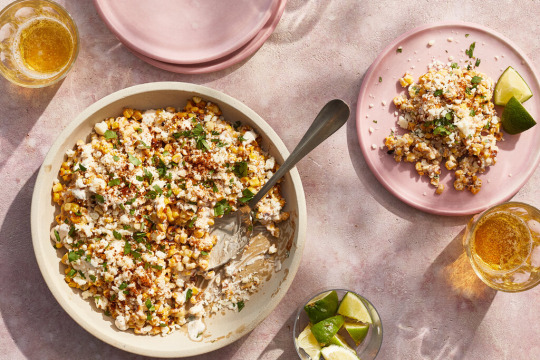
Exquisite esquites
By Mia Leimkuhler
If I were mayor of Picnictown, every picnic would have the following: a blanket, a 1:1 dog-to-human ratio and esquites. The blanket’s there because grass is itchy no matter what the most outdoorsy person in the group says; the dogs because dogs are great. The esquites are essential because my favorite outdoor corn is elotes, but they don’t travel nearly as well as esquites. (The laws of Picnictown consider how easy it is to carry your picnic things on public transportation.)
This is barely a compromise, though, because Kay Chun’s esquites capture all the beloved and balanced elements of elotes: sweet summer corn, tangy lime, creamy cotija (and crema), spicy ancho chile. The smoky flavor you get from grilled corn is here, too, as the kernels are charred in a hot skillet until browned and caramelized. Perhaps the most enticing part of the recipe is this note from Kay: “Leftovers transform quickly into a great pasta salad the next day; simply toss with cooked pasta and olive oil.” Picnictown loves a resourceful pasta salad.
More picnic decrees, because it’s the first day of summer! Make Zainab Shah’s sheet-pan chicken tikka thighs ahead of time, and then toss some roti or naan in your tote bag for effortless but extremely delicious sandwiches. Ali Slagle’s green bean salad with dill pickles and feta is perfect all by itself, but if someone else wanted to bring a container of cooked barley or farro, that would be a really nice collaborative grain bowl picnic moment. (For even more lovely, easy picnic ideas that travel well, check out this recipe collection.)
Every June, the summer produce flows into and overwhelms my corner grocery store, and every June I am positively giddy about it. Right now the shelves are buckling from so many cherry tomatoes, and I’m doing my part with salad e-shirazi, basil and tomato fried rice and salmon and tomatoes in foil, a five-star, five-ingredient dinner from Mark Bittman.
I am trying to be more adventurous with my vegetables, branching out and bringing home goodies I don’t usually cook. I’ve never really loved bitter melon (I’m not alone), but I do like bitter things — extra dark chocolate, dandelion greens, Campari. So I’m going to try this stir-fried bitter melon with eggs, a recipe from Chutatip Suntaranon (known as Nok) adapted by Cathy Erway.
The creamy scrambled eggs, salty soy sauce and molasses-y brown sugar will mellow out the harshest edges of the bitter melon. And I trust Nok — I’ve had the pleasure of dining at Kalaya, Nok’s restaurant in Philadelphia, and Nok never misses.
Lastly: It’s hot out there, and I’d like to give you an excuse to stand in front of the open refrigerator after a long afternoon in Picnictown. Here’s Lisa Donovan’s new recipe for buttermilk tres leches cake, which is best served extremely chilled, straight from the pan. I interpret this as spooning giant mouthfuls of cold, creamy cake into my mouth while bending into the fridge, but if you’d like to use plates and forks and a table, by all means.
IN THIS NEWSLETTER
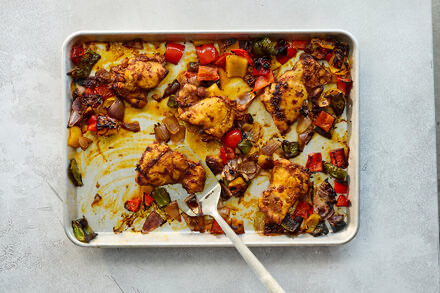
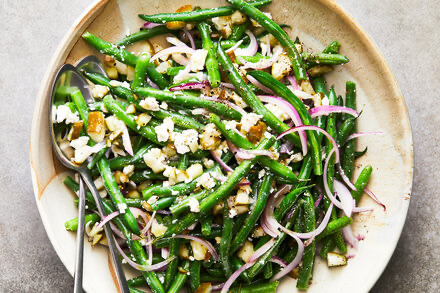
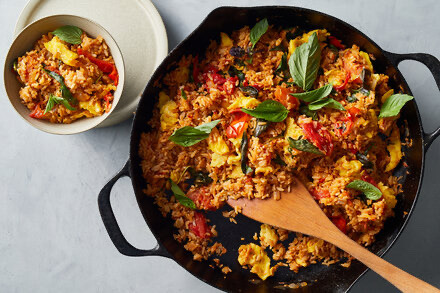
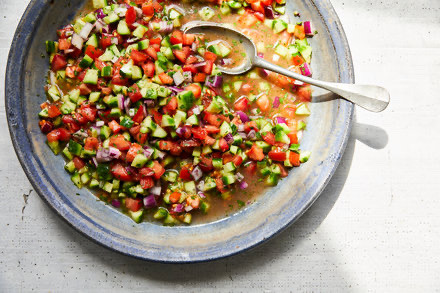
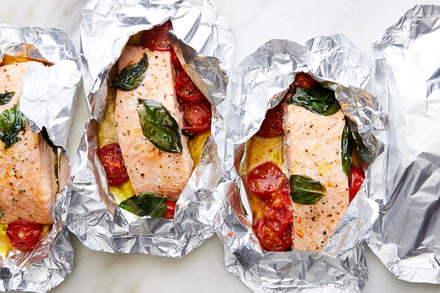
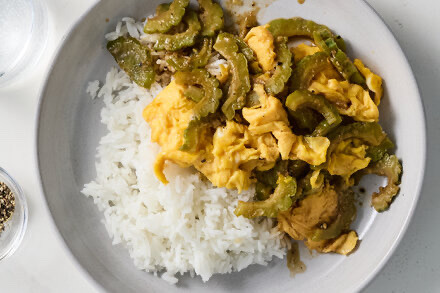

Sign up for The Veggie newsletter
Tanya Sichynsky shares the most delicious vegetarian recipes for weeknight cooking, packed lunches and dinner parties.

#the new york times #cooking
#mia leimkuhler #picnic #kay chun
#make zainab #matk bityman
#cathy erway #nok #lisa donovan
#sheer-pan chicken tikka thinghs
#basil and tomato fried rice
#salmon and tomatoes on foil
#butyermilk tres leches cake
#recipe’s #the veggie newsletter
#tania shichynsky #dinner parties
#packed lunches #food
#original food #xpuigc #pucex
#olaf peterson #de tot
#the new york times#cooking#mia leimkuhler#picnic#kay chun#make zainab#matk bittman#cathy erway#nok#lisa donovan#sheet-pan chicken tikka thinghs#basil and tomato fried rice#salmon and tomatoes on foil#butyermilk tres leches cake#recipe’s#the veggie newsletter#tanya shichynsky#dinner parties#packed lunches#food#original food#xpuigc#pucex#olaf peterson#de tot
10 notes
·
View notes
Text
if you were never taught how to cook, i highly recommend mark bittman's how to cook everything. the cookbook has 2,000 recipes, as well as in depth instructions for the techniques used. it might be the single best cookbook for a beginner.
25 notes
·
View notes
Text
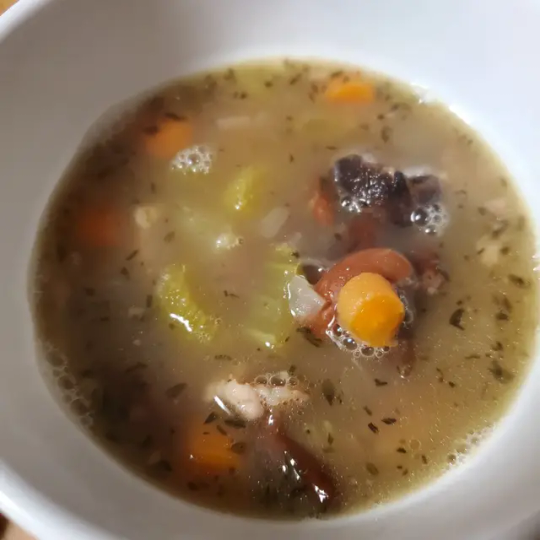
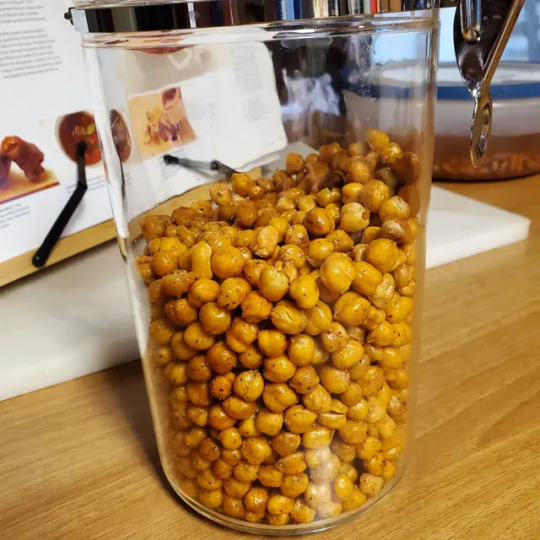

I feel today's kitchen adventures have fully cemented me into my Bean Queen title. Red bean and ham soup from Mark Bittman, crispy roasted chickpeas, and Alton's Brown's Once and Future Beans.
#they all taste like delicious spite at my family for being such jerks about fucking red beans#but seriously#these alton brown baked beans are heaven#handmade#home cooking
4 notes
·
View notes
Note
BEAS my LOVE it's nice ask week time! hello hello <3
my ask for everyone is...what is a book you are looking forward to reading and a movie you are excited to watch in 2024? :) xoxo roop
HI ROOP MY LOVE
So my answer is was and will be The Pairing by Casey McQuiston, though I was lucky enough to get my hands on an ARC so I am sitting like a fat happy cat right now for that one. I will say though that I am really looking forward to reading a number of Chef Memoirs and Cooking books this year.
The not so short TBR list of my cooking books to read this year
Cooking in General
Salt Fat Acid Heat by Samin Nosrat
The Joy of Cooking by Irma Rombauer
How to Cook Everything by Mark Bittman
Tasting History by Max Miller
The Science of Cooking by Dr. Stuart Farrimond
The Flavor Bible by Andrew Dornenburg and Karen Page
Chef Memoirs
Kitchen Confidential by Anthony Bourdain
Climbing the Mango Trees by Madhur Jaffrey
Toast Nigel Slater
Notes From a Young Black Chef by Kwame Onwuachi
Save Me the Plums by Ruth Reichl
Yes Chef by Marcus Samuelsson
Heat by Bil Buford
Eat a Peach by David Chang (THE ONE THAT IS COMING OUT THIS YEAR ON THE LIST)
as for movies...
DUNE 2 MY BELOVED
Spiderman beyond the spiderverse
I am sure there will be more but those two are at the top of my list right now
6 notes
·
View notes
Note
🌻 If you get this, answer with 3 random facts about yourself and send it to the last 7 blogs in your mentions, anonymous or not! Let's get to know the person behind the blog 🌻
-Ash💗
HI BBY.
@yeehaw-djarin is helping me with this-
I'm an "amazing" cook
I've sung at a Buddhist monastery for the Dalai Lama and Laila Ali
I've gotten to interview one of my favorite food writers- Mark Bittman
7 notes
·
View notes
Text
What if, rather than play to profit motives, a restaurant could hew to a new set of priorities? Namely, that the ingredients are sourced from regenerative farms, that workers are paid fairly, that the food is nutritious, and meals are affordable to all via sliding-scale prices. ... Bittman’s project is less concerned with establishing a dining destination or two than setting in motion a wholesale paradigm shift. ... “I want to be really disruptive, really revolutionary, really radical. I want to show that there’s a whole other way we can do all the things that are related to food and address everything that’s wrong with the current food system.” ... Bittman said that bringing a non-profit restaurant to market is not that outlandish. After all, we live in a society founded on subsidies, where everything from American universities and agriculture are underwritten by the government. “We subsidize farming, but not eating,” Bittman said. “The United States subsidizes the production of bad food. We subsidize the production of food that’s extractive and destructive and unhealthy and makes people sick, and is bad for the environment and so on and so on. We could be subsidizing food that’s nutritious and supports environmental health and supports farmers. That’s a change that has to be made.”
3 notes
·
View notes
